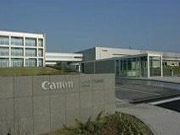Japanese business hit hard in China

 0 Comment(s)
0 Comment(s) Print
Print E-mail CNTV, September 18, 2012
E-mail CNTV, September 18, 2012
Japan’s purchase of the Diaoyu Islands has ignited anger among Chinese people. After cases of boycotting of Japanese products, several major Japanese corporations have decided to suspend factory production. Many have been affected by the political tensions and the resulting protests in Chinese cities.
Camera giant Canon announced closure of 3 of its 4 factories in China.
Home appliance maker Panasonic has taken similar steps, suspending production at two of its factories and closing another.
The two companies took the move, citing concerns for staff safety.
Japan’s economy has been hit by the political disputes in various ways.
Since the Japanese government announced the purchase of the Diaoyu Islands, sales of many Japanese businesses in China have seen declines. Boycotting of Japanese products has led to a market slide of the major TV makers from Japan.
Political tensions have also played a part in the decline of Japanese car sales in China. According to China’s Association of Automobile Manufacturers, Japanese car makers saw an increase of only 2 % in sales last year, while their competitors from Germany, US and France are all hailing double digit growth.
Japan’s tourism has also been affected. Some Chinese travel agencies have been persuading travellers to avoid going to Japan at the moment. Others have simply cancelled their trips. Shop owners in Tokyo are already worried.
Owner of an art studio in Tokyo said, "I don’t know the exact figure, but we’ve seen a significant reduction in Chinese tourists here. Why? Chinese guests always come here in the morning, but we’re seeing fewer of them."
Chinese markets have played an important role in Japan’s economic recovery from the global finance crisis. Yet the territorial dispute and resulting anger of the Chinese may cast a shadow over Japan’s decade-long economic stagnation.






Go to Forum >>0 Comment(s)